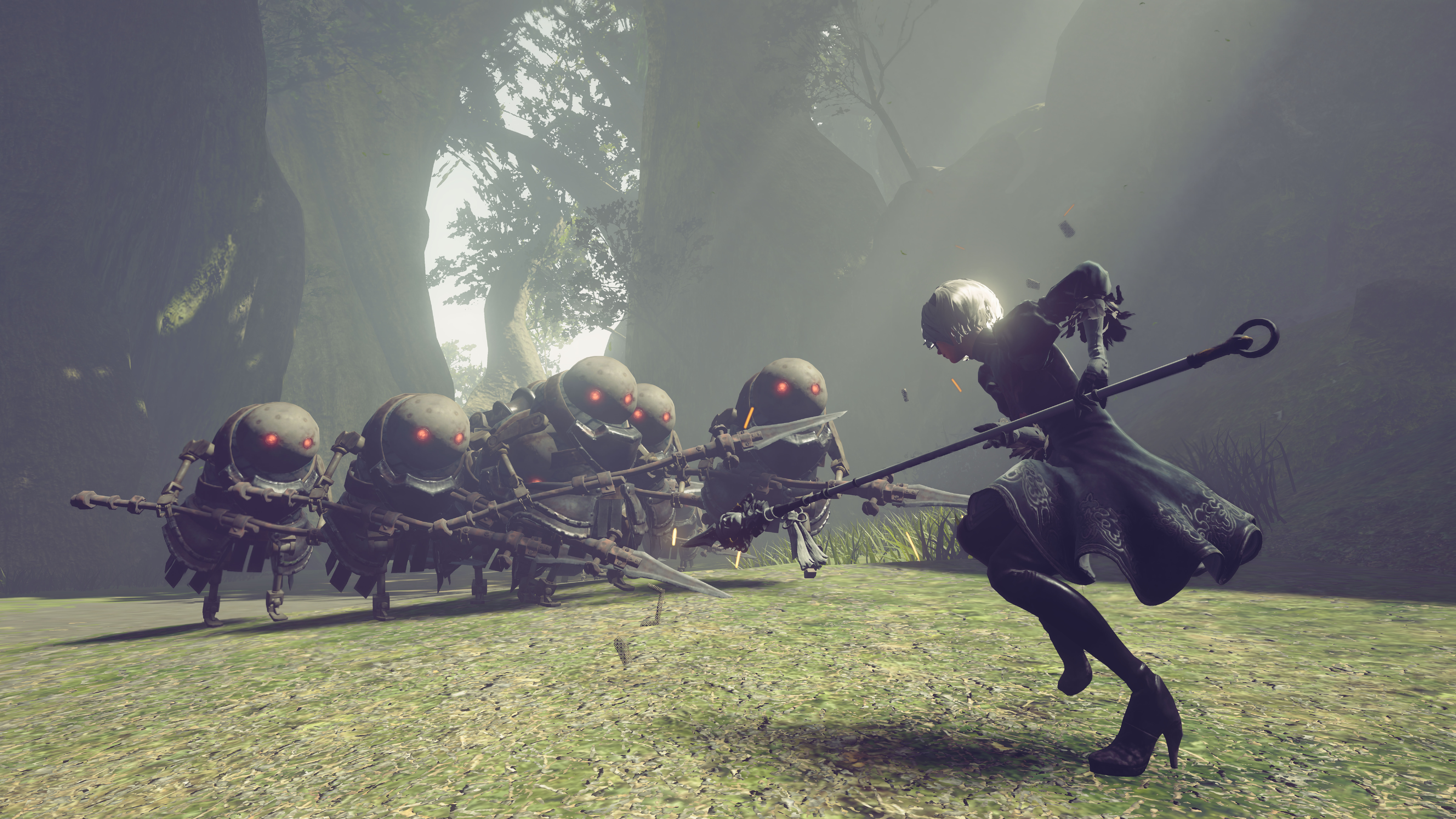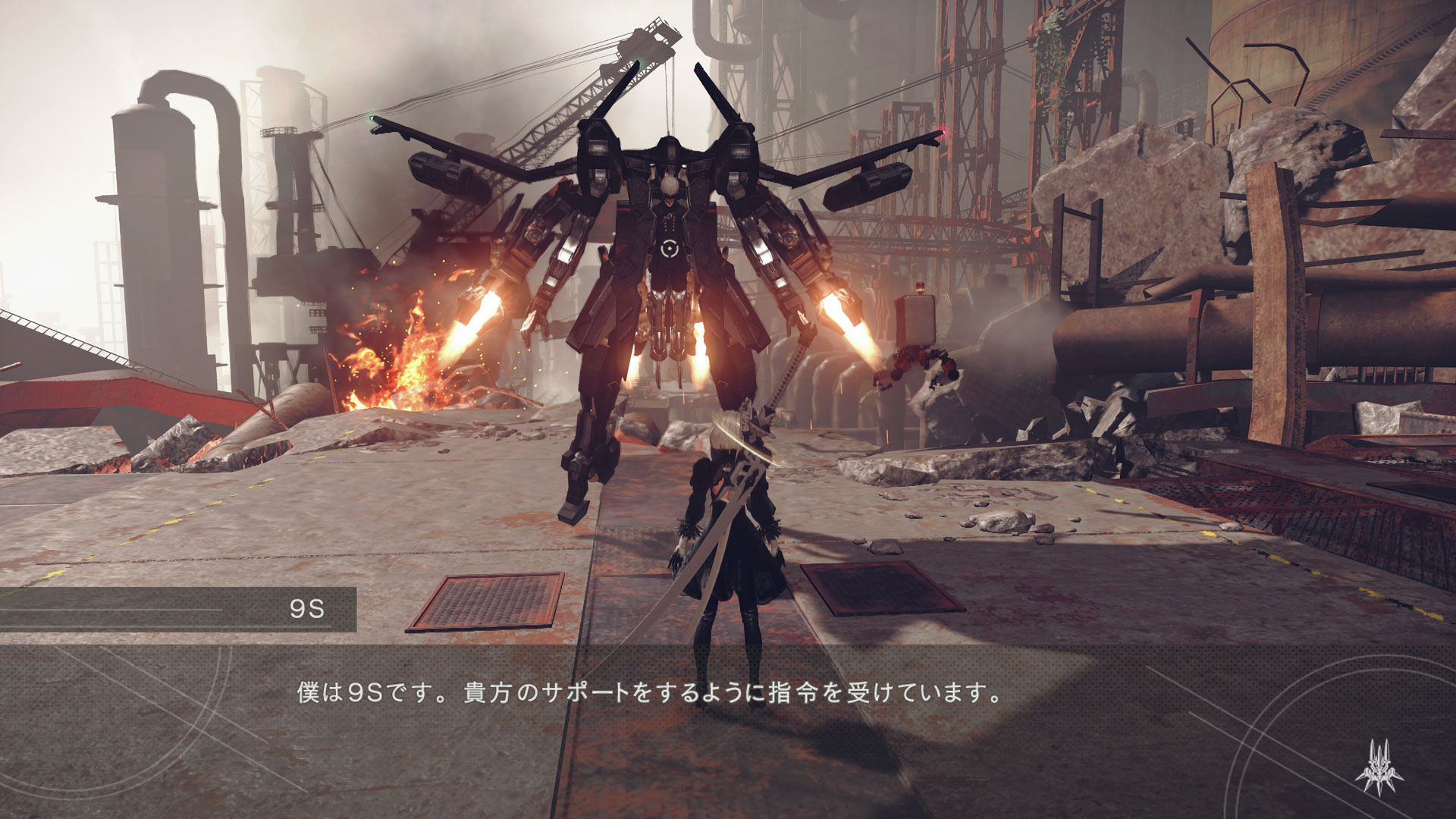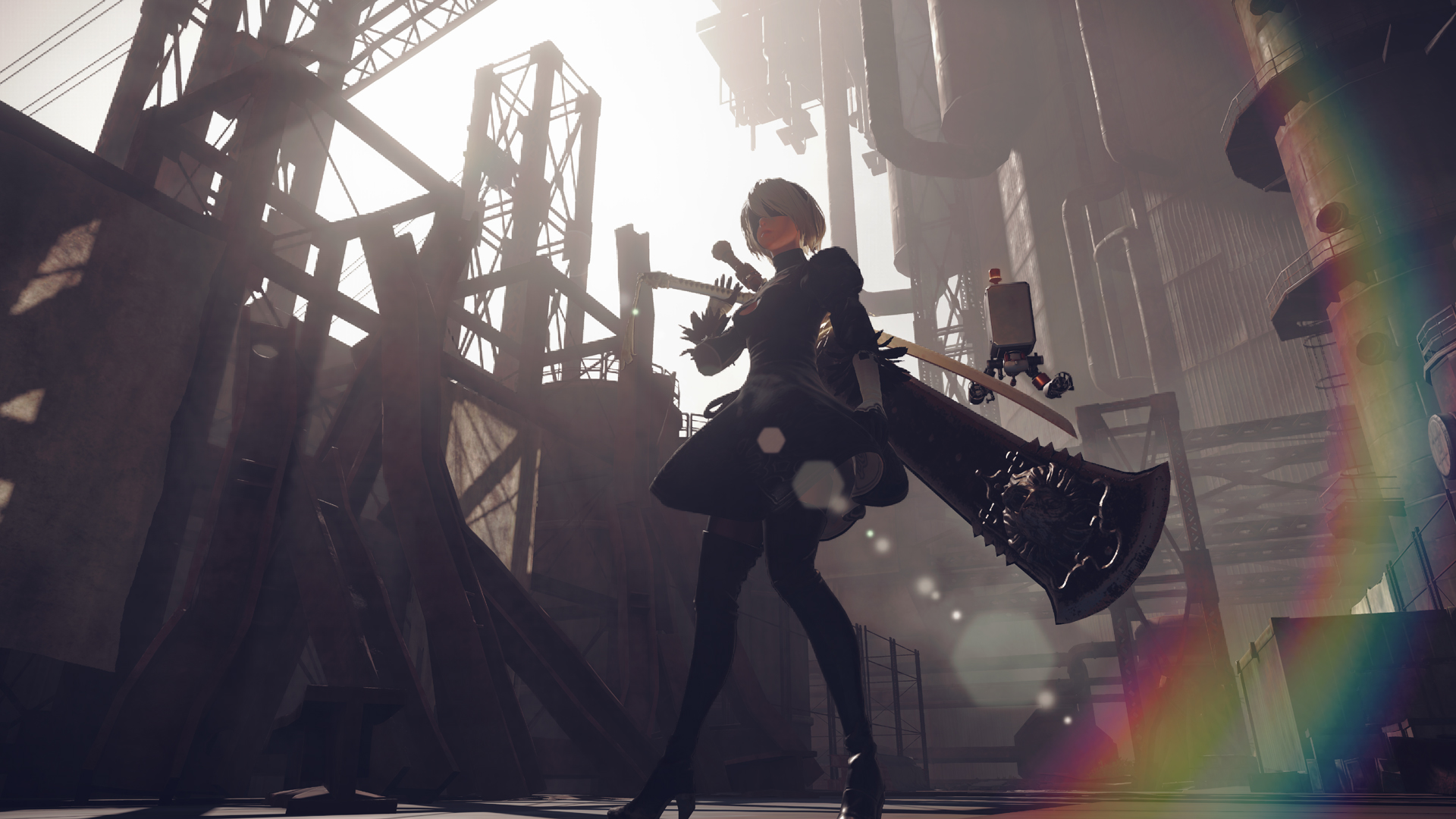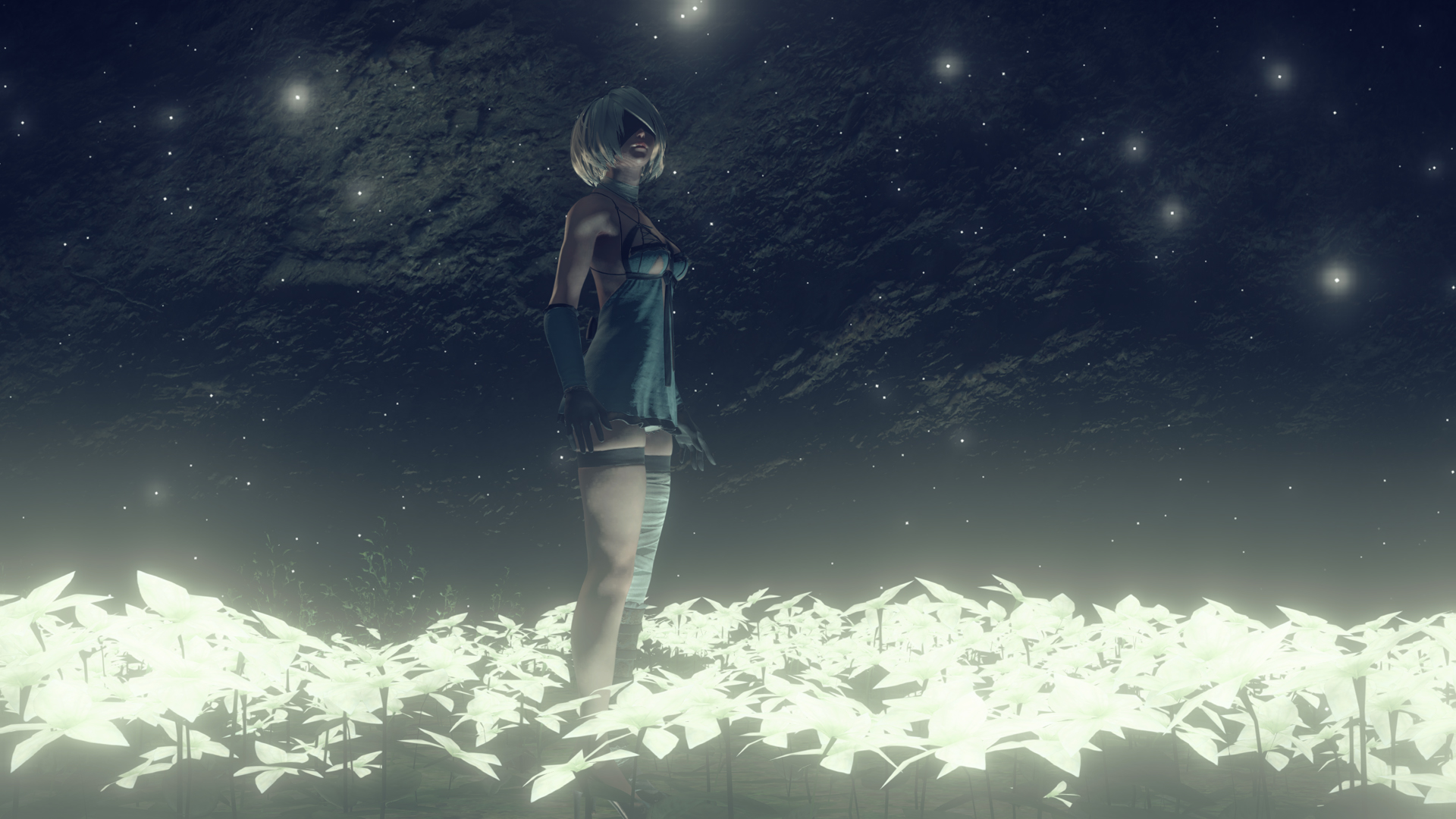Two Years Later, Nier: Automata Is Still One Weird Game
Nier: Automata is still one of this generation's weirdest games, and we can all use a little weirdness in our downtime.
Nier: Automata debuted two years ago, and one of my biggest regrets in modern gaming is that I didn't pick it up when I first had the chance. This action/RPG is about life, death, consciousness, loyalty, humanity, and androids dressed like French maids who wield enormous katanas.

So, before you ask, yes: It's from the developer of Bayonetta and the publisher of Final Fantasy. It's also one of the weirdest games of this generation. And after an endless succession of battle royales, looter-shooters and remakes, we can all use a little weirdness in our downtime.
The newly released Nier: Automata - Game of the Yorha Edition ($40, PS4) is the easiest way to play the game if you haven't before. (If you have, there's nothing new here; it's just the original game plus all the various DLC that's come out since 2017.) This is my first time through the bizarre and beautiful world of Nier: Automata. Although I haven't yet fully explored the postapocalyptic Earth and defeated all of the maybe-sentient machines that inhabit it, I would like to add my voice to the chorus of gamers insisting that this title is something special.

A multitude of games in one
One thing I'll say about Nier: Automata is that it'll never bore you. In the game's first level, you start off playing a bullet-hell space shooter, dodging enemy projectiles and alternating your own light and heavy attacks to take down enemies as they fly across the screen. But there's no time to get accustomed to that, because then your plane transforms into a giant robot. Now, you're playing a twin-stick shooter, evading increasingly elaborate patterns of enemy fire while trying to point your lasers in the correct direction.
MORE: Nier Automata: Everything You Need to Know
Then, a few minutes later, you're on the ground, slicing and dicing enemies with a sword. Before you can get fully accustomed to that, the game tosses you a robotic companion that can fire both light and heavy laser beams. When you confront the first level's enormous boss, you start off with the standard third-person action/RPG combat, then transition into a side-scrolling stage, then hop into another giant mecha to finish the job.
If nothing else, Nier: Automata has plenty of variety. And it's the kind of variety that should be familiar to fans of other Platinum games. While you can crank the difficulty way up and make every battle into a life-or-death struggle, by default, Nier: Automata is much more concerned with fun than skill. The battle system is light and breezy enough that the game can lean on it most of the time, but it's not quite deep enough to sustain an entire game. Platinum seems well aware of this and gives the player plenty of opportunities to mix things up. It's an agreeable game progression, and there's not too much grind required, either.
You can level up simply from fighting enemies, but the more interesting way to build up your character (a combat android named 2B; I'll get to her in a bit) is to acquire chips. 2B can equip a fixed number of different data chips, some of which improve her combat abilities (dealing more melee damage, taking less ranged damage, etc.) and some of which add useful information to the HUD (a health bar, an experience counter, etc.). It's an interesting mechanic, since you'll need to decide whether you want to get more at-a-glance information or gear up exclusively for combat. Furthermore, as you increase the number of chips you're able to equip, you can discover some very interesting combinations that give your play style a unique feel.

Do androids dream of electric swords?
Nier: Automata is a fun action/RPG, but the market is not exactly hurting for fun action/RPGs. What sets it apart is that it has something to say — and a very, very weird way to say it.
In the game, you play as 2B, a combat android who, for some reason, looks like a Victorian/Gothic anime protagonist, complete with silver hair, high heels, a blindfold (which, somehow, does not impair her fighting skills) and an obscenely short dress. She and her fellow androids exist to wipe out a race of alien machines that have made Earth uninhabitable for humanity. All of the humans retreated to a moon colony, where they cheer on the androids but never seem to show themselves. (No points for guessing that something funny is going on there.)
The story has enough sci-fi twists and turns to keep it interesting, but the game is much more about theme than narrative. Using androids to explore questions of consciousness, morality, life, death and existentialism is hardly unique to Nier: Automata. But something about the juxtaposition of "weighty philosophical questions" and "sexy android blowing up robots in a giant mecha" gives the game a delightful sense of strangeness that makes it hard to put down.
MORE: The 25 Best Video Game Characters of All Time
By all rights, the game's existential themes should make the story feel pretentious and dull, but they don't. Or, failing that, the game's zany anime gameplay should make the pop philosophy feel cheap or superficial — but, again, it doesn't. Nier: Automata is sincere but never takes itself too seriously, like the best philosophical novels. Think Siddhartha, or Brave New World, or Ishmael, but with lasers and sword fights, and you're at least on the right track.
What also sets the game apart from similar stories is that it bakes the philosophical questions right into its gameplay. You can't simply play through 2B's arc and call it a day; once you finish the game, you have to replay it a few times to see all sides of the campaign. Without spoiling anything: You'll be asked to make some decisions along the way that may seem purely mechanical but affect the story in subtle ways.

Game of the Yorha
For those who want to know the specifics about the Game of the Yorha edition, it comes with a PSN theme, 15 PSN avatars, the 3C3C1D119440927 expansion pack, and a handful of skins and accessories for said expansion. Again, if you've played the game before, there's nothing you really need here, but if you haven't, it's an excellent way to get the full package.
As for whether you should play it, I think so, if only because there's really nothing else like it. Most philosophical games feature slow, thoughtful gameplay, and most zany action/RPGs have similarly lightweight stories. Nier: Automata is an intriguing blend of the two. It's also an interesting evolution of the Drakengard series, if you played that back in the day. (It's technically the fifth game in the series, but for all practical purposes, you can play it as a stand-alone title.)
At any rate, it's something unique, and that alone makes it worth a look.
Credit: Square Enix
Sign up to get the BEST of Tom's Guide direct to your inbox.
Get instant access to breaking news, the hottest reviews, great deals and helpful tips.
Marshall Honorof is a senior editor for Tom's Guide, overseeing the site's coverage of gaming hardware and software. He comes from a science writing background, having studied paleomammalogy, biological anthropology, and the history of science and technology. After hours, you can find him practicing taekwondo or doing deep dives on classic sci-fi.

